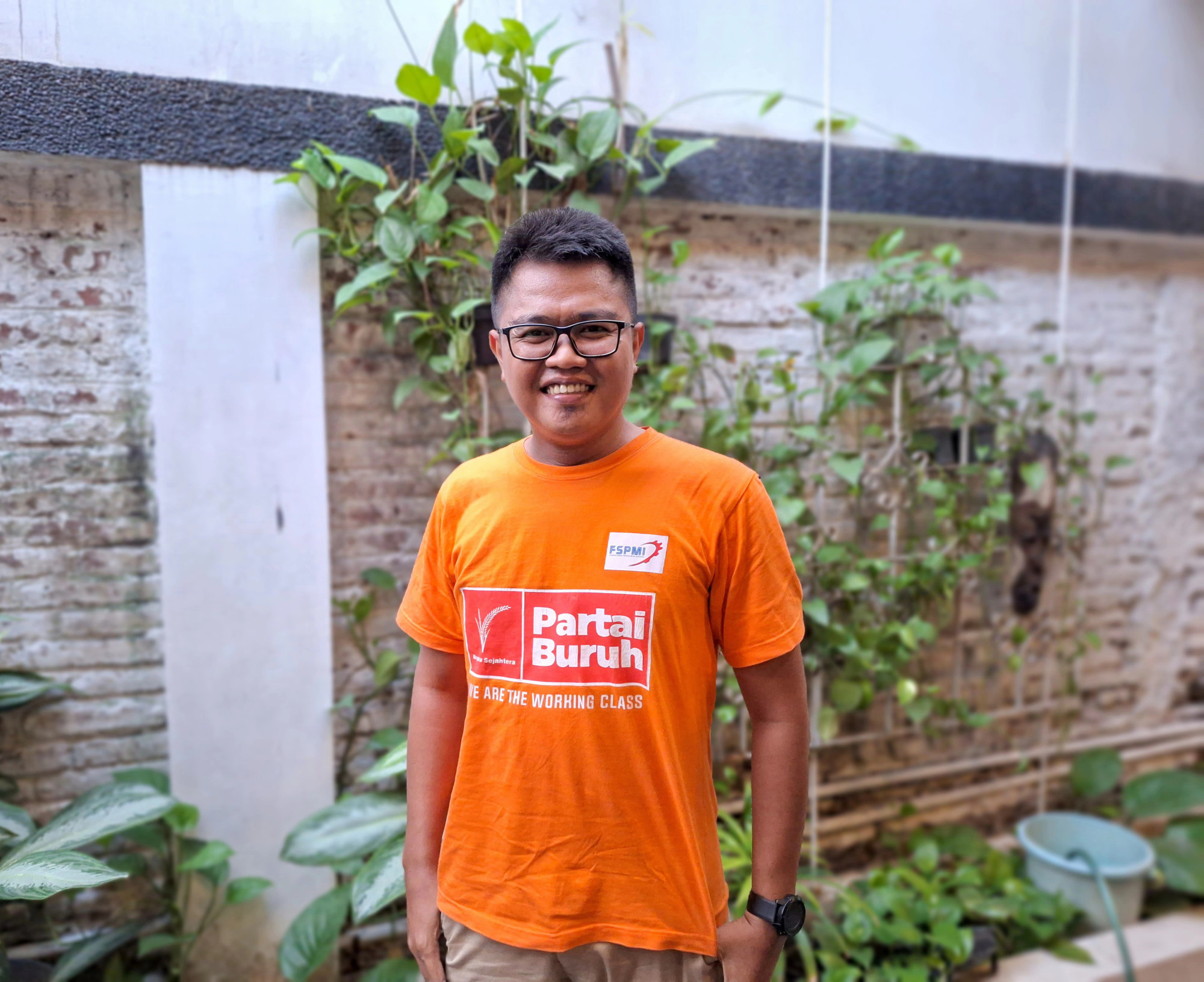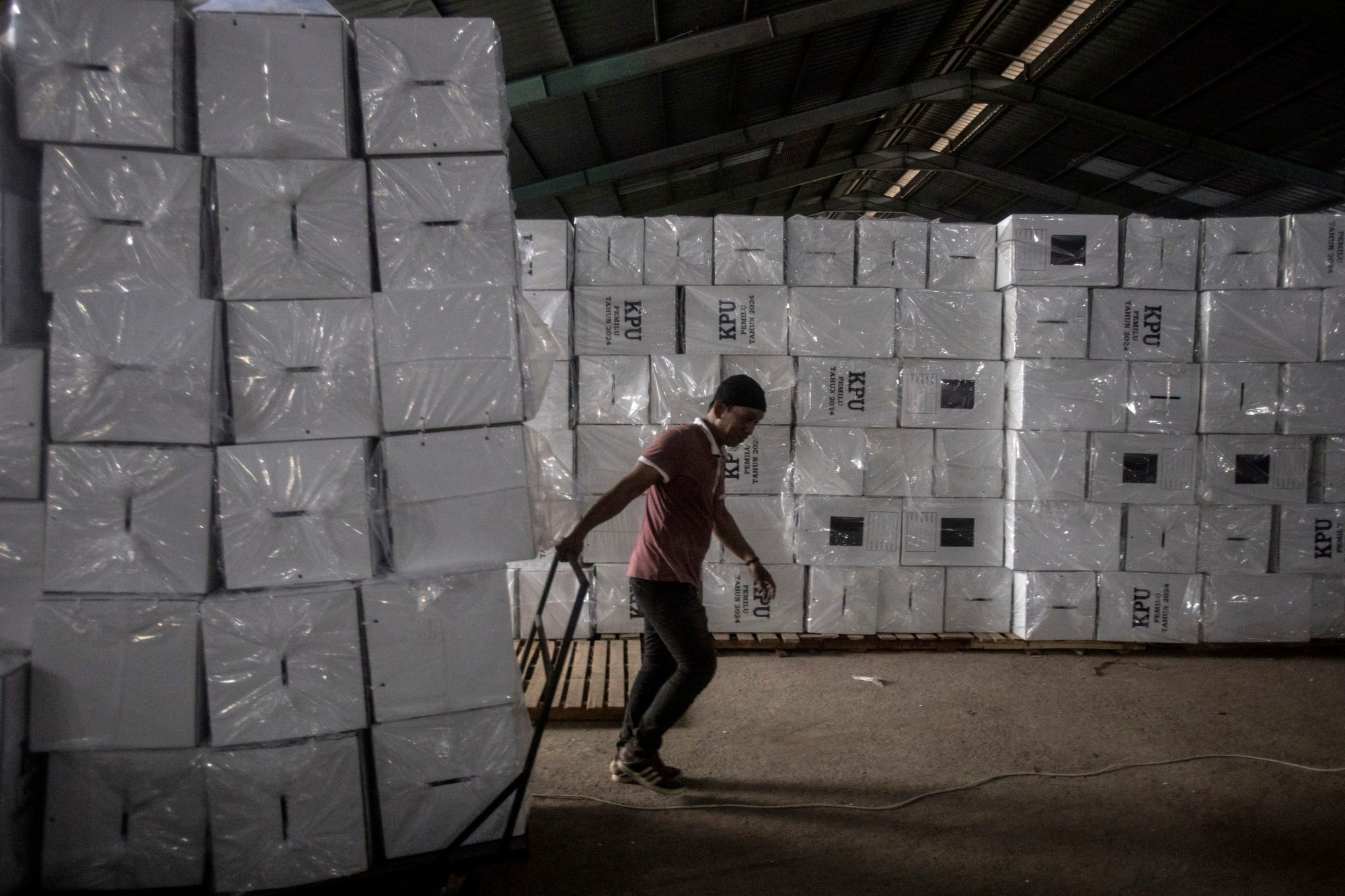Indonesia election 2024: Labour Party seeks to shake up politics by ‘defending worker rights’
“An independent survey was conducted in 18 cities involving 1,200 respondents, and found 67.8 per cent of workers or 3,390,000 voters, both unionised and non-unionised, planned to vote for the PB,” he said.
Said pointed out that the figure would correspond to 2.3 per cent of Indonesia’s total number of eligible voters. “This means we only have 1.7 per cent to go before crossing the 4 per cent parliamentary threshold to make it into the House of Representatives (DPR).”
Why Indonesia’s Gen Z and millennials could determine nation’s next leader
Why Indonesia’s Gen Z and millennials could determine nation’s next leader
Aisah Putri Budiatri, a political scientist and researcher at Indonesia’s National Research and Innovation Agency, said if the PB succeeded in garnering enough votes to enter parliament, it would make history.
“PB will be the first centre-left party to accomplish this feat. Its success in qualifying for the election was in itself remarkable, given that another centre-left party, Prima, didn’t,” she said.
Aisah said since Indonesia’s anti-communist purge – which took place between 1965 and 1966 and is estimated to have led to the deaths of more than 1 million people – the government has been dominated by centre-right political parties that are divided into “nationalist” and “religious” camps.
“But the most obvious consequence of this configuration is that most political parties today share a similar ideological approach and hence [homogenous] policy platforms,” she said.
The Surabaya chairperson of PB, Nuruddin Hidayat, said it was that kind of policy uniformity that prompted 11 major trade unions to resurrect the Indonesian Labour Party in October 2021.
“The catalyst for our decision to form a party dedicated to defending worker rights was the passage of the Omnibus Law, which greatly benefits the corporate sector at the expense of workers,” the 34-year-old legislative candidate said.

Some controversial clauses include reductions in the size of severance pay and paid leave. Activists also claim the law provides employers with new loopholes to deny workers permanent work status and other benefits.
“The fact is all the political parties in the DPR assented to the Omnibus Law, which only shows that none of them are on the workers’ side,” Nuruddin said.
Nuruddin said the current iteration of the PB could trace its roots to the old Indonesian Labour Party, founded in 1998 by the late union boss Mochtar Pakpahan.
The old PB had become defunct after repeatedly failing to reach the parliamentary threshold in subsequent elections. In the 2009 election, it only secured 0.25 per cent of the total national votes.
From India to Indonesia, 2024 is Asia’s election year. But will anything change?
From India to Indonesia, 2024 is Asia’s election year. But will anything change?
Asked why the party’s new incarnation would fare better, Nuruddin said the original party had been spearheaded by only one trade union, limiting its outreach. “With 11 major national unions encompassing different fields of work behind the new party, we are better organised and we have learned lessons from the past.”
Nuruddin said the PB was adopting a “non-aligned” stance in the presidential election.
“Our party has decided not to back any of the three presidential candidates because our condition for support was a signed political contract spelling out the respective candidate’s commitment to revise the Omnibus Law,” he said.
None of the candidates agreed to do so, he said.
Aisah said that due to the fairly uniform ideological platforms of all the other parties in Indonesia, the PB was well-placed to offer alternative policies as a representation of the centre-left.
“If we examine the manifestos of the other parties, they are all hackneyed, generic ideas that we have all heard before, with no specifics,” she said.

Nuruddin said his party’s strategy revolved around “real issues affecting people’s livelihoods” which have been neglected by the more established parties, citing the government-managed universal healthcare system (BPJS) as an example.
“While the BPJS seeks to cover the healthcare of all Indonesians, in reality around 20 per cent of the population is unable to access it, largely because they can’t afford the monthly dues,” he said.
Nuruddin said that at the city level in Surabaya, he had started lobbying officials to provide subsidies for poor residents – including itinerant construction workers, vagabonds and small traders – so that they could be covered under the scheme.
He said the PB had instigated a new mechanism in Indonesia’s electoral process known as “constituent recall”, under which voters could demand the removal of their representative if he or she were deemed to be in serious breach of voter aspirations.
Defensive Prabowo ‘underwhelms’ in third Indonesia presidential debate as rivals go on attack
Defensive Prabowo ‘underwhelms’ in third Indonesia presidential debate as rivals go on attack
Nuruddin said the PB was currently an “anomalous” party in Indonesia as it was perceived to be against “business interests”.
“We have become the enemy of business groups, some of which have started campaigning against us,” he said.
But Nuruddin claimed this was a misconception. “We only want fair treatment for workers. But as a result of this characterisation, PB is shunned by political donors from the corporate sector.”
Competing against other parties on a shoestring budget presented a sizeable challenge for PB’s legislative candidates. “Major parties can afford to pay for at least one witness to safeguard their votes at each voting booth. Our party doesn’t have that kind of money,” he said.
A voting “witness” in Indonesia typically earns between 100,000 rupiah (US$6.45) and 250,000 rupiah per day. There are 820,161 voting booths in the coming election.
The PB would have to rely on its network of unpaid volunteers, Nuruddin said.
“[For] example, to qualify for the election, the PB had to prove it has real grass roots supporters who would voluntarily sign up to become members. We were given a threadbare budget to achieve this, so it meant we had to find genuine supporters who didn’t ask for money.”
Singapore warns against being ‘used as a platform’ for Indonesia’s polls
Singapore warns against being ‘used as a platform’ for Indonesia’s polls
Money politics is a notorious feature of Indonesian democracy. Candidates running for parliament often offer monetary compensation to voters that say they will support them.
Parliamentarian Habiburokhman from the Gerindra Party recently confessed to having spent more than 2 billion rupiah (US$130,000) on his overall campaign in 2019.
Still, Nurrudin said he had cause to be hopeful.
“The fact we managed to pass the membership verification process without having to bribe constituents goes to show our party has a real support base among voters.”


 Offers free spin
Offers free spin